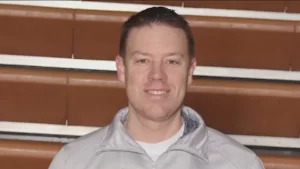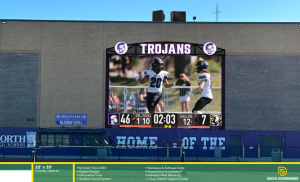Homecoming Court modified at DGN
October 22, 2019
In the past, DGN’s Homecoming Court was nominated by students through strictly democratic voting from students, with the nominees based solely on the top six students–three boys and three girls–that received the majority of all votes.
This year, the ceremony was quite different. Head of DGN Student Activities Mark Mirandola stated the decision to no longer include juniors on the court was made in order to represent a larger portion of the school as well the fact that the junior court was relatively unnecessary. However, these changes didn’t negatively impact voting numbers this year.
“More people voted overall, the number of initial submissions was greater than years in the past. The amount of people voting was higher as well because it was open to all grades, not just seniors like in the past.” Mirandola said.
Students have voiced their support regarding the decision, one of which being senior Drew Cassens. Cassens, who was a part of Homecoming court both junior and senior year, stated that the experience is an improvement compared to last year.
“I thought it was a good idea to get teacher’s thoughts on who they think would be a good representation of the student body because they have a different perspective than students. It was a different experience from last year because last year there was also a junior court, that was the only large difference for me,” Cassens said.
Hailey Grubich is the only other student who was on the Homecoming Court this year as well as the 2018-2019 school year. She views the changes as progressive.
“The group this year seem to more accurately exemplify the school because more of [the representatives] are involved with varying activities, clubs, and sports. The court has kids from all different communities, and represents more of the student population.” Grubich said.
Senior Mary Albert was apart of the committee for the 2019-2020 and commemorated the reformed court as well.
“I think the court this year is definitely more diversified than what we’ve seen in the past; there’s more of a variety with the sports and activities everyone was involved in. The ability to share the court with such a wide range of students allowed more of DGN’s community to be seen, and I think that we’re shifting away from Homecoming Court being a popularity contest towards a representation of the entire school,” Albert said.
Although DGN’s homecoming court has been altered multiple times over two years, DGS’s homecoming ceremony and committee has remained consistent in recent years. DGS’s court includes representatives from each grade level, unlike DGN’s court which has been exclusively upperclassmen for multiple years.
Head of DGS student activities Jennifer Martinez confirmed the routine process at DGS. The lower classmen vote on their respective representatives by year, while senior voting is unique.
“In the past, only coaches and activity sponsors nominated students. This year, we allowed any teacher or staff member to nominate a student. Staff members are asked to nominate deserving DGS students [to the ballot],” Martinez said.
DGS’s seniors nominate representatives, with the four most vote-getting males and females entering the court.
“After the senior representatives have been announced, the voting for the King and Queen begins. Voting for King and Queen is subject to only the student body,” Martinez said.
Currently, DGN staff is conversing about future changes, one of which is the removal of the titles Homecoming King and Queen, which may be replaced by the title of “representatives.”
“We want to reidentify what it means to be on the Homecoming court and to be King and Queen. We are trying to answer some questions: does [the court] need to be specific to gender? Should DGN hold to tradition? The students should be nominated because they are role models, for both their daily actions and what activities they are involved in,” Mirandola said.
























